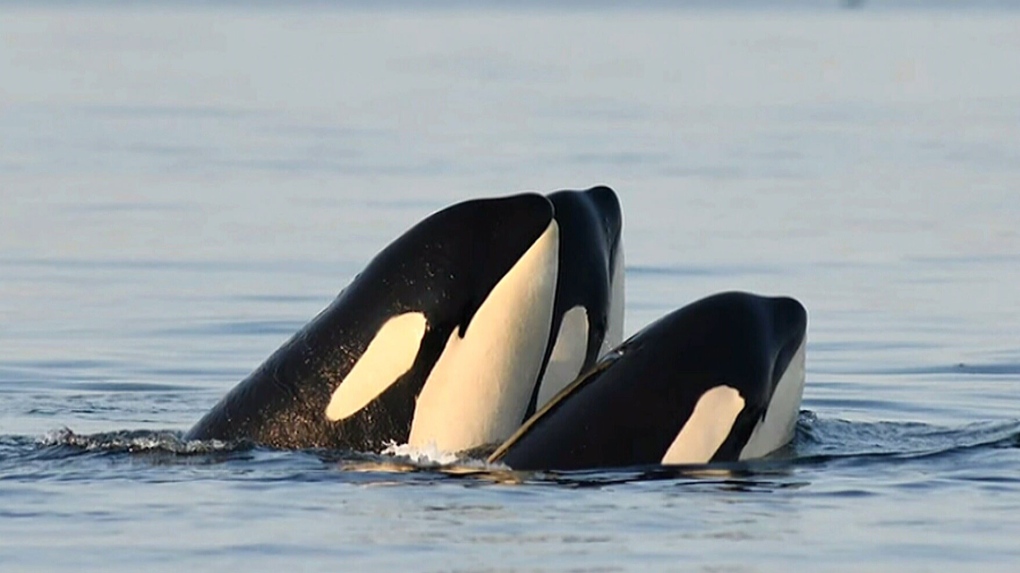Orcas ramming boats doing some 'teenage roughhousing': UBC researchers

Gangs of killer whales have been causing chaos off the coast of Spain for the past few years, ramming into hundreds of boats, causing expensive damage to some and even sinking three since 2020.
What’s causing orcas to target vessels – bumping into them and tearing their rudders off – remains a mystery, researchers at the UBC Marine Mammal Research Centre have a theory: teenage mischief.
The whales seem to go after sailboats in particular, and specifically their rudders, which led the scientists to think the animals are motivated by curiosity above all. In addition, most of the orcas interacting with boats in the area are juveniles.
“Killer whales are very curious and they love to inspect things and see what’s going on,” Taryn Scarff, a masters student with the research centre told CTV News. “They’re just having some fun, and it’s just some teenager behaviour that’s gotten a little bit out of hand.”
Gotten out of hand, because killer whales are massive and can cause a lot of harm with out meaning to.
“If they were purposefully attacking the boats, they would be a little bit more aggressive in their approach. They seem to be approaching the boats quite calmly,” Scarff said, noting that the whales only appear aggressive because of their size.
“If it was a more planned attack, I would assume they’d be putting more speed into it. But that would also definitely take a toll on their bodies – it would be like us running into a wall over and over,” she continued.
The main theory that emerged when the behaviour among the killer whale population off the Spanish coast began was that one individual whale—the mother within the pod—had a traumatic event involving a sailboat, and she was seeking revenge on the vessels, Scarff explained.
She also began teaching younger whales to do the same.
“They saw mum doing this behaviour and thought it looked really fun and cool so they started doing it,” said Scarff.
The boat-bashing behaviour is now catching on with the young whales in another group, and seafarers' encounters with them are increasing.
That’s because, similar to human teenagers, killer whales have fads. And boat-bumping may just be the hot new thing with the kids in that area.
Another example of an orca fad is when a female in the Pacific Northwest’s Puget Sound wore a dead salmon on her nose, and the trend spread to all three pods in her area. That trend sparked in the 1980s, and died quickly after it appeared.
Like human fads, researchers don’t know how long this one will last.
Scientists are trying to figure out why exactly the whales are ramming boats, and what particularly interests them about said boats, before anyone gets seriously hurt.
A research group specific to the phenomenon has been set up in Spain, and they created an app to track killer whale sightings in hopes there won’t be any more sinkings.
Sea crews can check the app while travelling, and use it like a traffic light. Greens mean no killer whale sightings in the area, yellow means some and red means there have been many, so find a different route.
Scarff notes that current theories about why orcas are targeting boats are purely speculation from researchers at this point, and after three years of research into this phenomenon, there’s more work to do.
“At the end of the day, who really knows other than the killer whales?” she said.
CTVNews.ca Top Stories

DEVELOPING Person on fire outside Trump's hush money trial rushed away on a stretcher
A person who was on fire in a park outside the New York courthouse where Donald Trump’s hush money trial is taking place has been rushed away on a stretcher.
Mandisa, Grammy award-winning 'American Idol' alum, dead at 47
Soulful gospel artist Mandisa, a Grammy-winning singer who got her start as a contestant on 'American Idol' in 2006, has died, according to a statement on her verified social media. She was 47.
Senators reject field trip to African Lion Safari amid elephant bill study
The Senate legal affairs committee has rejected a motion calling for members to take a $50,000 field trip to the African Lion Safari in southern Ontario to see the zoo's elephant exhibit.
CFIA monitoring for avian flu in Canadian dairy cattle after U.S. discoveries
The Canadian Food Inspection Agency is encouraging veterinarians to keep an eye out for signs of avian influenza in dairy cattle following recent discoveries of cases of the disease in U.S. cow herds.
She set out to find a husband in a year. Then she matched with a guy on a dating app on the other side of the world
Scottish comedian Samantha Hannah was working on a comedy show about finding a husband when Toby Hunter came into her life. What happened next surprised them both.
DEVELOPING G7 warns of new sanctions against Iran as world reacts to apparent Israeli drone attack
Group of Seven foreign ministers warned of new sanctions against Iran on Friday for its drone and missile attack on Israel, and urged both sides to avoid an escalation of the conflict.
'It could be catastrophic': Woman says natural supplement contained hidden painkiller drug
A Manitoba woman thought she found a miracle natural supplement, but said a hidden ingredient wreaked havoc on her health.
After hearing thousands of last words, this hospital chaplain has advice for the living
Hospital chaplain J.S. Park opens up about death, grief and hearing thousands of last words, and shares his advice for the living.
Vancouver firefighter in rehab at home after losing leg to flesh-eating infection overseas
A family trip took a frightening turn for Christopher Won when he was diagnosed with flesh-eating disease while in Hong Kong and now, after weeks of treatment overseas, the Vancouver firefighter is back home recovering.
































